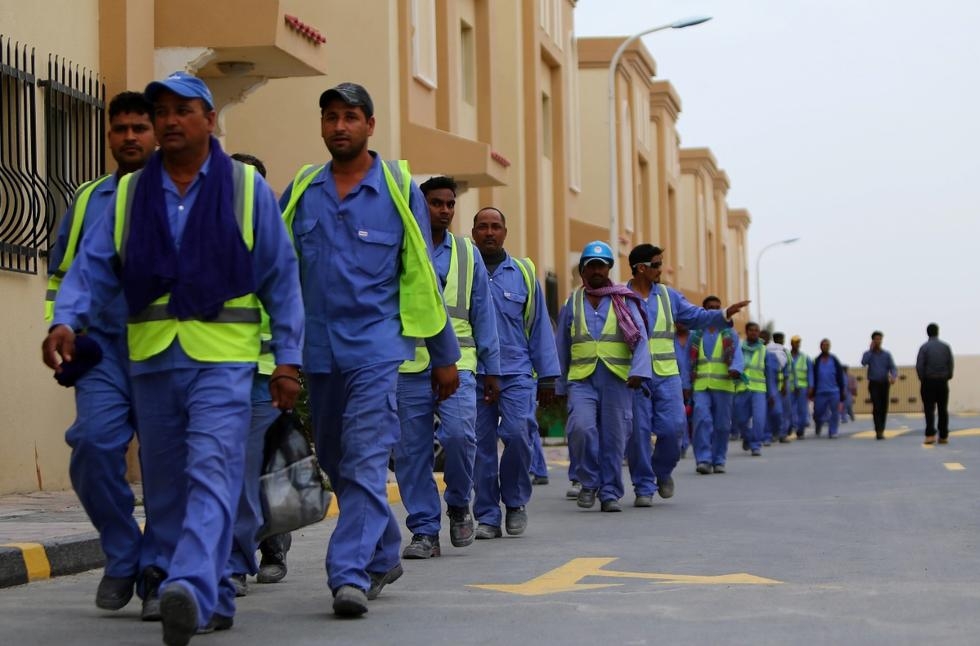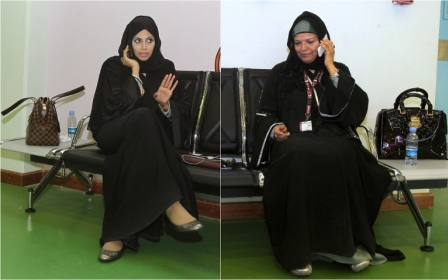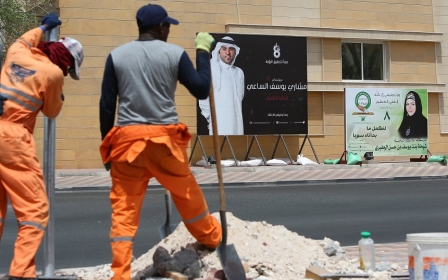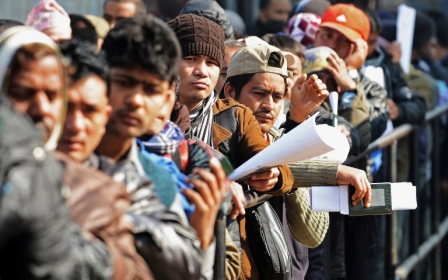BBC reporters arrested in Qatar while investigating migrant worker abuses

A group of BBC reporters were recently arrested in Doha and spent two nights in prison while investigating alleged abuse of migrant workers, it emerged on Monday.
BBC reporter Mark Lobel wrote on Monday that he and four colleagues were detained in the wealthy Gulf state when on a government-sponsored trip to visit new accommodation aimed at improving the working conditions of migrant workers.
When the BBC team tried to film workers outside the trip organised by Qatar’s prime ministerial office, they were swiftly arrested.
“Eight white cars surrounded our vehicle and directed us on to a side road at speed,” wrote Lobel. “A dozen security officers frisked us in the street, shouting at us when we tried to talk. They took away our equipment and hard drives and drove us to their headquarters.”
“Later, in the city’s main police station, the cameraman, translator, driver and I were interrogated separately by intelligence officers. The questioning was hostile.”
The journalists were not accused of a specific crime, although intelligence officers showed them photographs that suggested they were following the BBC team for two days.
One interrogator reportedly said: “This is not Disneyland. You can’t stick your camera anywhere.”
“They had actually photographed my every move since I arrived,” Lobel told BBC Radio 4’s Today programme.
The journalists were threatened with spending a further four days in prison, but on the second night of their detention they were released without warning.
The BBC team were then invited to re-join the state-sponsored trip, organised by public relations firm Portland Communications. They were shown “spacious and comfortable villas for construction workers, with swimming pools, gyms and welfare officers".
Qatar has come under scrutiny for its treatment of migrant workers since winning the right to host the FIFA World Cup in 2022. Hundreds of Nepalese workers are reported to have died in the Gulf state, while working in poor conditions for long hours, since construction began for the world cup.
The BBC team met with Qatar’s labour minister on their trip, who insisted that the country is an open and free place for journalists to work.
“Qatar is an open country forever, since ever,” Abdullah al-Khalaifi said, according to the BBC.
“The shortcomings that I am facing, the problems I am facing, I cannot hide. Qatar is open and now with the smartphones, everyone is a journalist.”
However, Lobel said that the country’s treatment of journalists portrayed a different picture.
“Why does Qatar welcome members of the international media while at the same time imprisoning them?” asked the BBC journalist. “Qatar’s Jekyll-and-Hyde approach to journalism has been exposed by the spotlight that has been thrown on it after winning the World Cup bid.”
FIFA issued a statement to the BBC and said it would investigate their detention.
"Any instance relating to an apparent restriction of press freedom is of concern to FIFA and will be looked into with the seriousness it deserves," the statement said.
A group of German journalists were also recently detained in the Gulf state, again while investigating the alleged abuse of migrant workers.
Qatar says it has tried to improve the conditions of migrant workers following a series of reports exposing poor conditions and deaths of migrant workers, by implementing a wage protection scheme and banning at least 450 companies from operating in the country. They say $6mn of fines have been doled out to companies violating new regulations and that the number of inspectors have been doubled.
Middle East Eye propose une couverture et une analyse indépendantes et incomparables du Moyen-Orient, de l’Afrique du Nord et d’autres régions du monde. Pour en savoir plus sur la reprise de ce contenu et les frais qui s’appliquent, veuillez remplir ce formulaire [en anglais]. Pour en savoir plus sur MEE, cliquez ici [en anglais].




